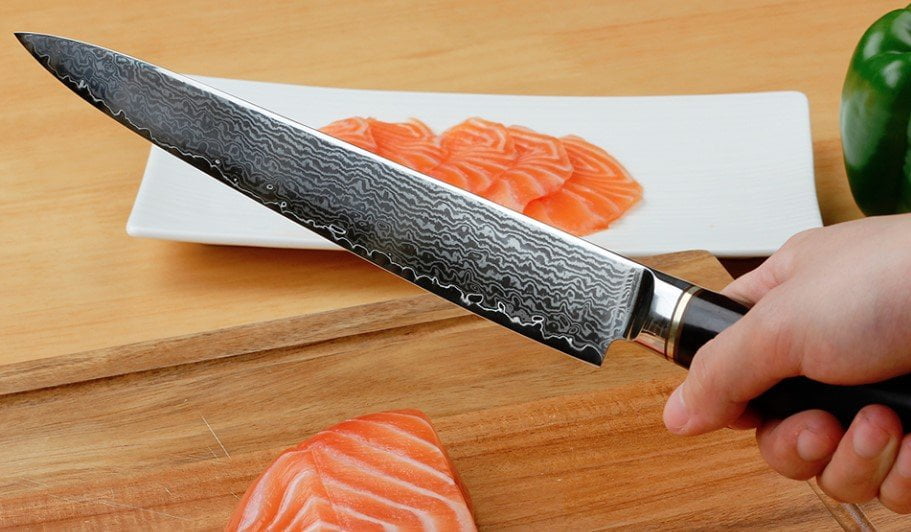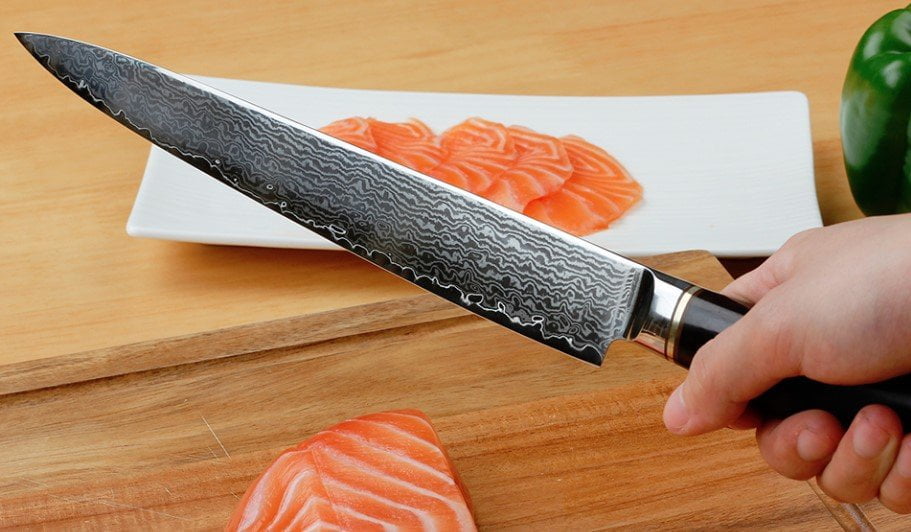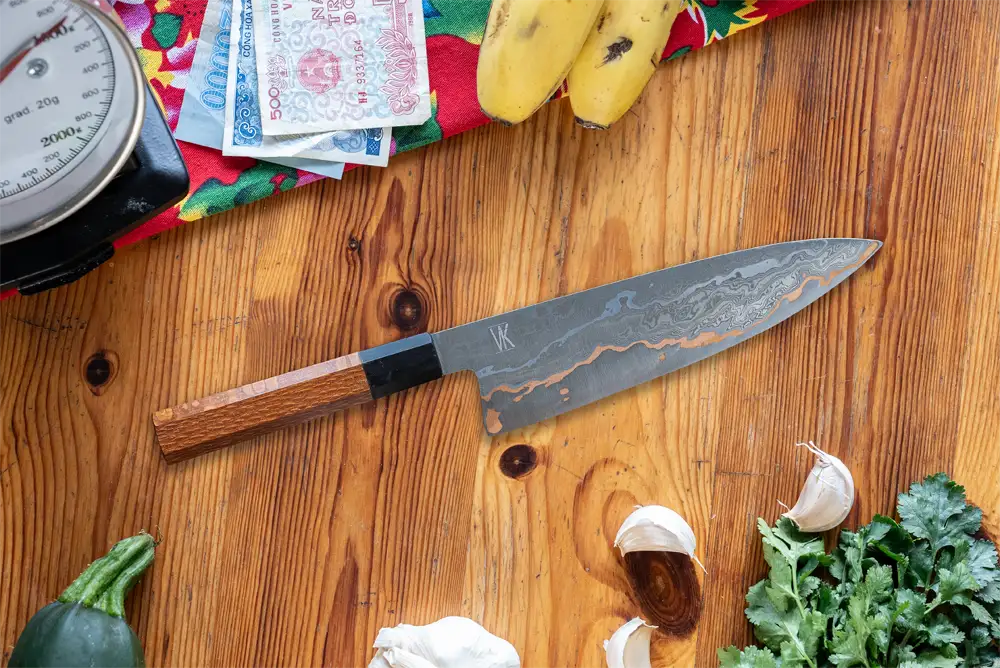In the world of culinary arts, the type of knife you use can greatly impact your cooking experience. Among the most debated choices are the santoku and chef knives, particularly those made of the high-quality Damascus steel. The purpose of this article is to provide a comprehensive santoku vs chef knife Damascus comparison to help you determine which might be the better choice for your kitchen needs.

Understanding the Basics
What is a Santoku Knife?
The santoku knife, originating from Japan, is celebrated for its versatility and precision. The name ‘santoku’ translates to ‘three virtues’ or ‘three uses’, representing its ability to handle slicing, dicing, and chopping. Learn more about its functionality at How Stuff Works.
What is a Chef Knife?
The chef knife is a staple in Western kitchens, known for its broad blade and ability to cut through large pieces of meat and vegetables. Its design allows for a rocking motion that aids in quick and efficient cutting.
What is Damascus Steel?
Damascus steel knives are revered for their strength, durability, and distinctive wavy patterns. This steel is created by forging multiple layers of metal, resulting in a blade that is both hard and flexible.
Key Differences: Santoku vs Chef Knife
Blade Design
The most apparent difference between these knives lies in their blade design. The santoku knife typically has a shorter, flat-edged blade compared to the chef knifes longer, curved blade. This difference affects how each knife feels and performs in hand during use.
Usage and Functionality
Santoku knives excel in precision tasks, making them ideal for mincing and fine slicing. Chef knives, however, are better suited for tasks that require more force, such as cutting through thick vegetables or meats.
Weight and Balance
Generally, santoku knives are lighter, which makes them easier to handle for those who prefer a nimble blade. Meanwhile, chef knives often carry more weight, aiding in cutting through denser foods.
Why Choose Damascus Steel?
The popularity of Damascus steel stems from its aesthetic appeal and performance. The distinctive patterns on the blade not only make it a choice for those seeking beauty in their kitchen tools but also ensure exceptional sharpness and edge retention. Discover more about its benefits at Serious Eats.
Durability and Maintenance
Damascus knives require less frequent sharpening compared to regular steel knives due to their hard surface. However, they should be properly maintained to prevent corrosion and rust.
Choosing the Best for Your Kitchen
Your choice between a santoku and chef knife with Damascus steel largely depends on your cooking style. If you frequently engage in precision cutting and value a lightweight knife, the santoku might be preferable. If you require a more robust tool capable of handling various kitchen tasks, a chef knife could be the better option.
Available Damascus Knife Options
For those interested in investing in a Damascus knife, consider exploring options such as the elegantly crafted chef quality Damascus knives or finding a beautifully patterned Damascus knife with resin handle.
Care Tips for Damascus Knives
To keep your Damascus steel knife in top condition, its essential to wash it immediately after use, dry it thoroughly, and store it properly. Avoid using dishwashers as they can damage the blade.
Resharpening and Honing
Regular honing will maintain the edge of your knife, but a full resharpening should be done by a professional to ensure the blade remains in its best shape.

Frequently Asked Questions (FAQ)
Are Damascus steel knives worth the investment?
Yes, many chefs and cooking enthusiasts find the performance and aesthetic of Damascus steel knives to be a worthy investment given their durability and quality.
Which is easier to maintain: santoku or chef knife?
Maintenance largely depends on the materials and the extent of use. Generally, both require similar care, though their difference in size might affect how theyre stored and cleaned.
Can I use the santoku knife for all tasks?
While the santoku is versatile, its best used for precision tasks. For tasks requiring more heft, such as breaking bones, a chef knife might be more suitable.
This article contains affiliate links. We may earn a commission at no extra cost to you.


